Components of Business Letters – ppt download
Presentation on theme: “Components of Business Letters”— Presentation transcript:
1
Components of Business Letters

2
Business Letters External Written Business communication
From a business to another business or individual Usually have a formal tone Used when you want a permanent written record of communication Business letters are formal paper communications between, to or from businesses Business letters are sometimes called “snail-mail” (in contrast to which is faster).

3
Business letters includes:
· Memo · Fax ·

4
Who writes Business Letters?
Letters are written from a person/group, known as the sender to a person/group, known in business as the recipient. Some examples of senders and recipients: · business «» business · business «» consumer · job applicant «» company · citizen «» government official · employee «» employee · staff member «» staff member
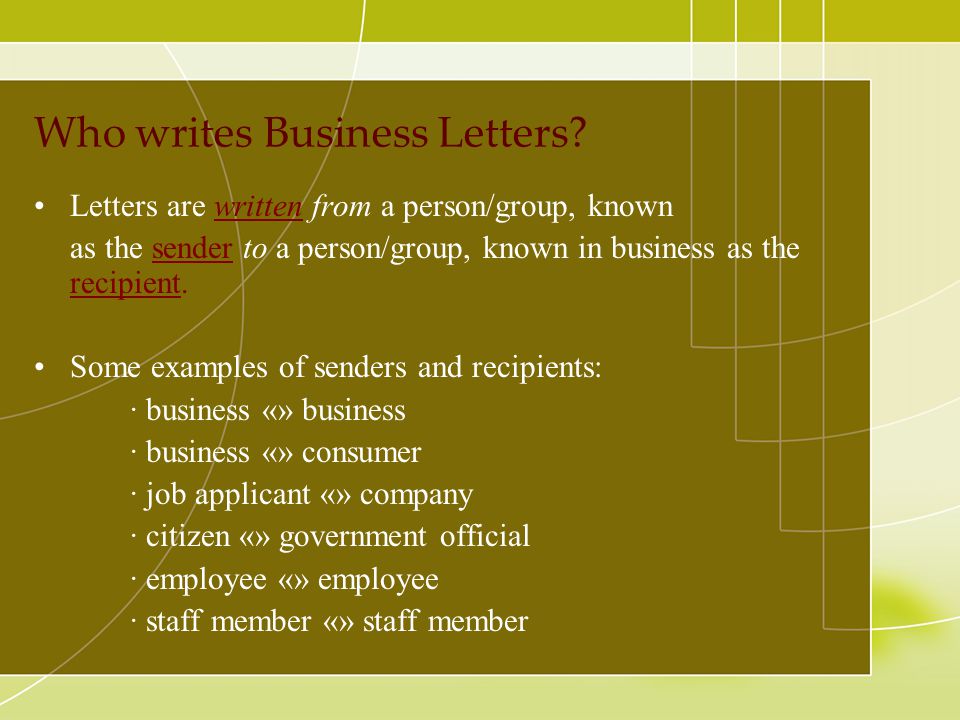
5
Why write Business Letters?
· To persuade · To inform · To request · To express thanks · To remind · To recommend · To apologize · To congratulate · To reject a proposal or offer · To introduce a person or policy · To invite or welcome · To follow up · To formalize decisions
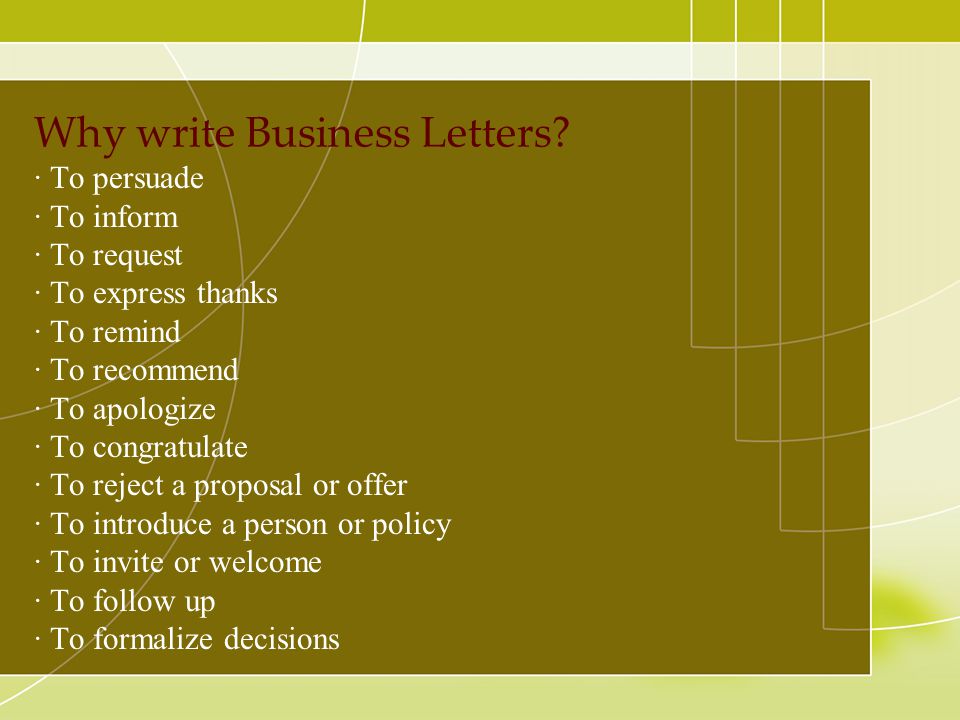
6
Sample

7
Letterhead Business letters are normally keyed on special stationery called letterhead. Please review the special letterheads identified on this website:
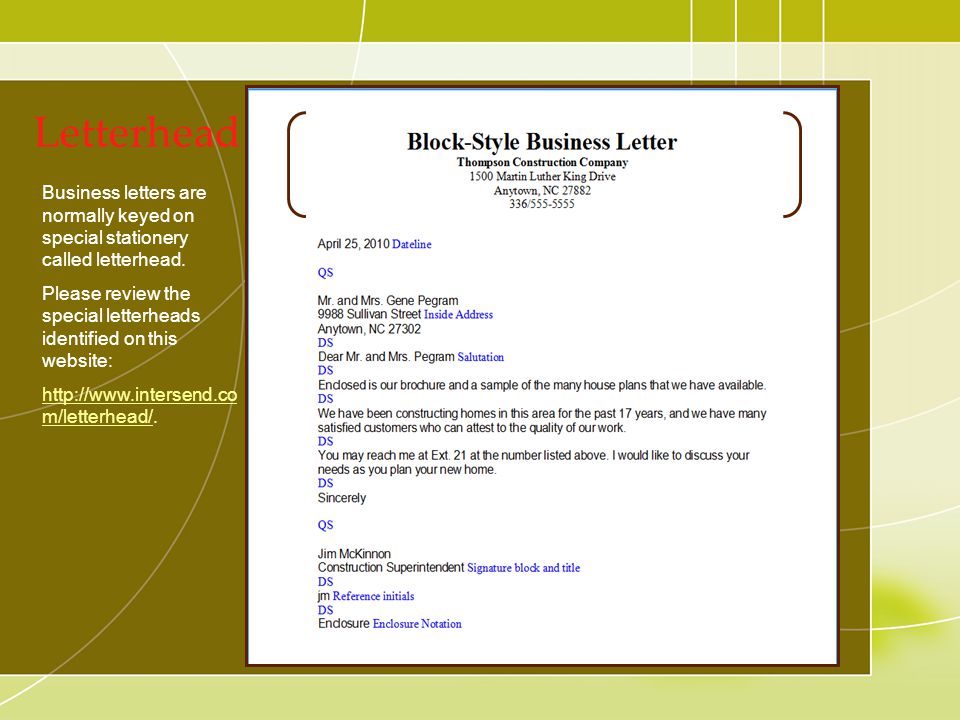
8
Margins Top 2”-2.5” Left 1” Right 1” Bottom 1”
When you begin keying a business letter, first set the correct margins: 2” or 2.5” top margin depending on the length of the letterhead 1” side margins 1” bottom margins File, Page Setup in Word Page Layout tab-Margins icon in Word 2007 Left 1” Right 1” Bottom 1”
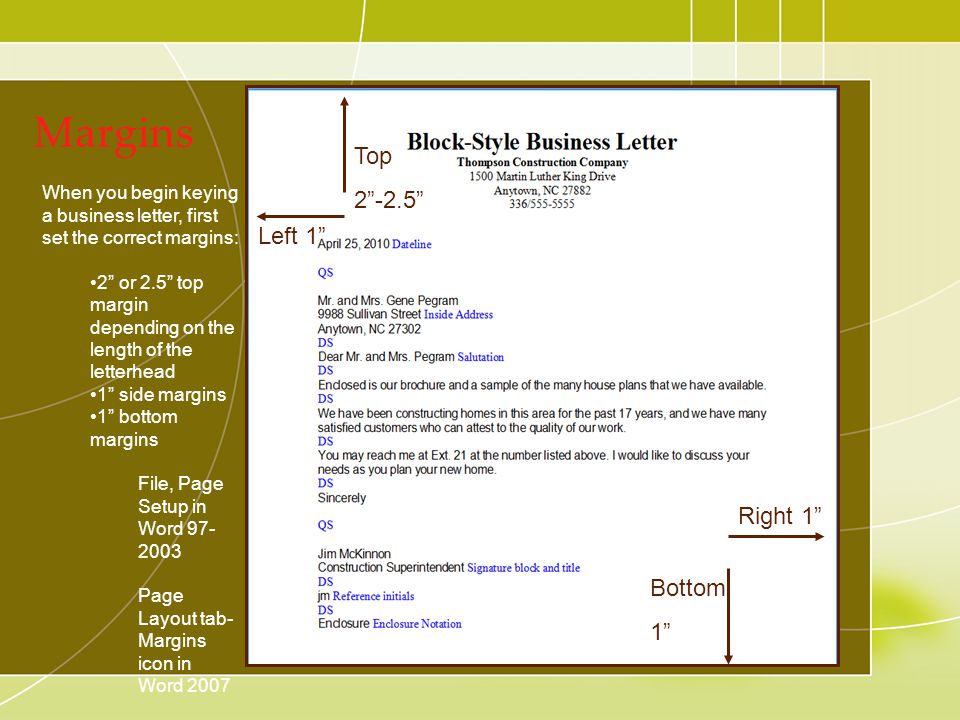
9
Punctuation Letters can use two types of punctuation: open or mixed.
Mixed punctuation: a colon is keyed after the salutation and a comma is keyed after the complimentary closing. Open punctuation: no colon after the salutation and no comma after the complimentary closing.
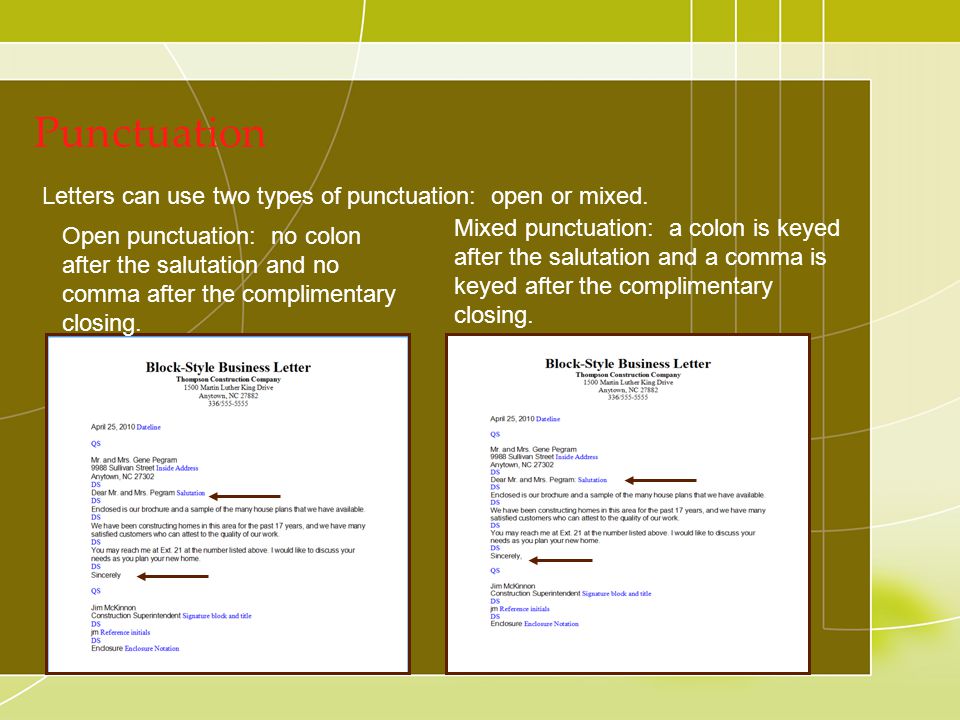
10
Parts and Spacing
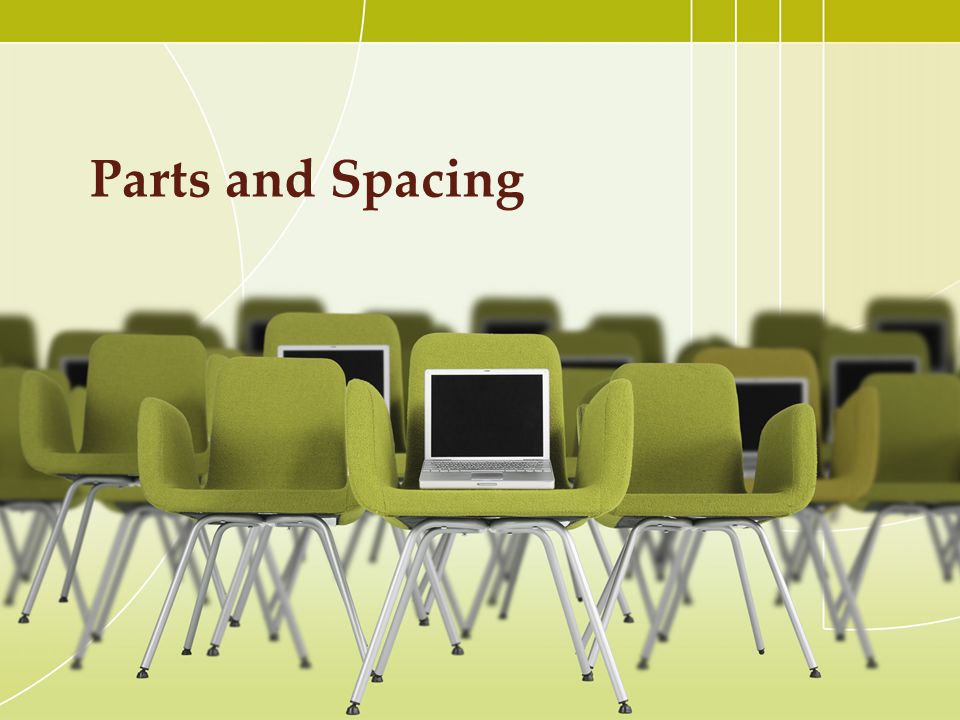
11
Essential Components of Letter Dateline
The dateline the is first part of the letter. It should be typed with the month spelled out and the full year as noted in the sample. The dateline should reflect the date the letter is prepared and signed. Quadruple space after the dateline.

12
Inside Address The inside address is the second part of the business letter. The inside address is the address of the person receiving the letter. The inside address should include the name, street address and city, state and zip code of the recipient. Double space after the inside address.

13
Salutation Also known as the greeting, the salutation is the hello part of the business letter. Salutations should include a greeting word, recipients title and last name. Open Punctuation: no punctuation after the salutation Mixed Punctuation: colon after the salutation Double space after the salutation.
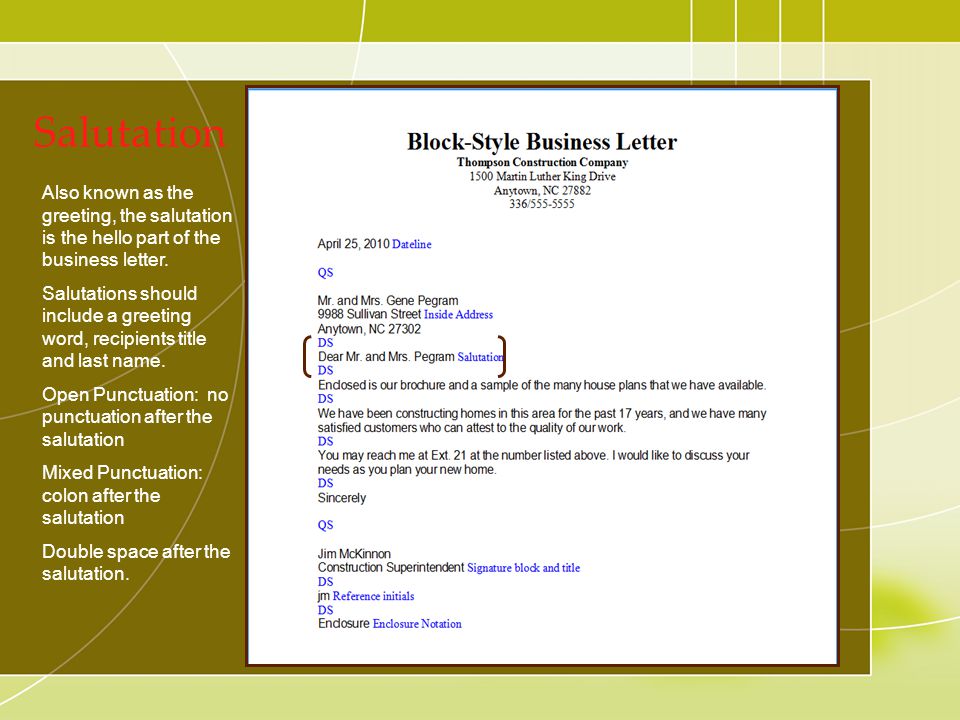
14
Body The body of the letter is the message in paragraph form.
Most letter bodies consist of three paragraphs: statement of purpose, information/facts, call for action. Double space between the paragraphs and single space between them. Double space after the body.
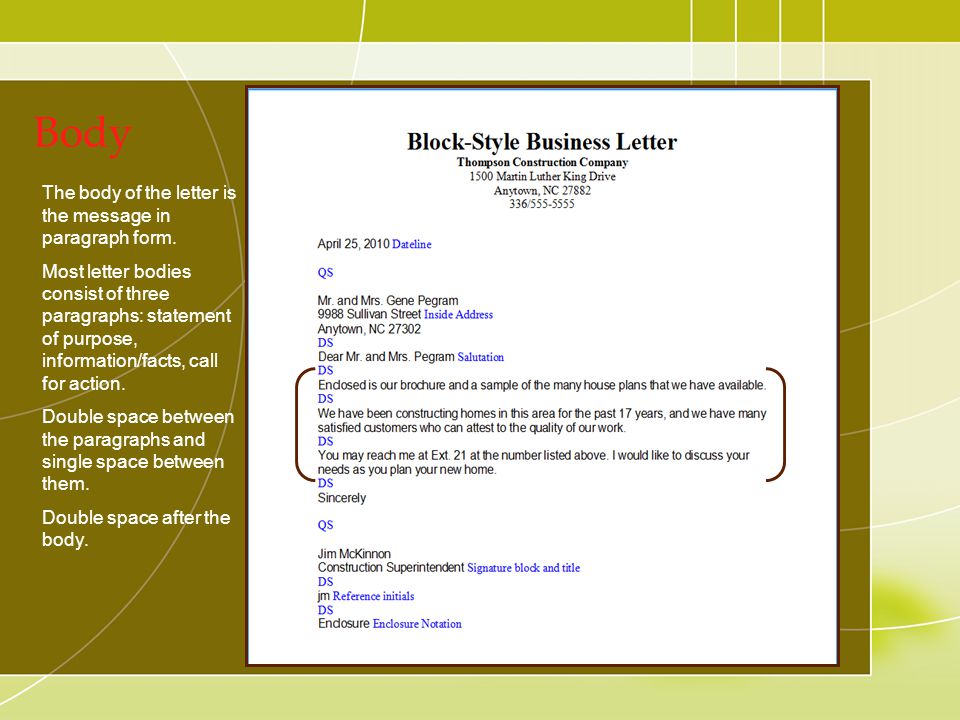
15
Complimentary Close The complimentary close is the goodbye of the business letter. Complimentary closes can vary and include words and phrases such as Sincerely, Yours Truly, Thank you. Open Punctuation: no punctuation after the complimentary close Mixed Punctuation: colon after the complimentary close Quadruple space after the complimentary close.
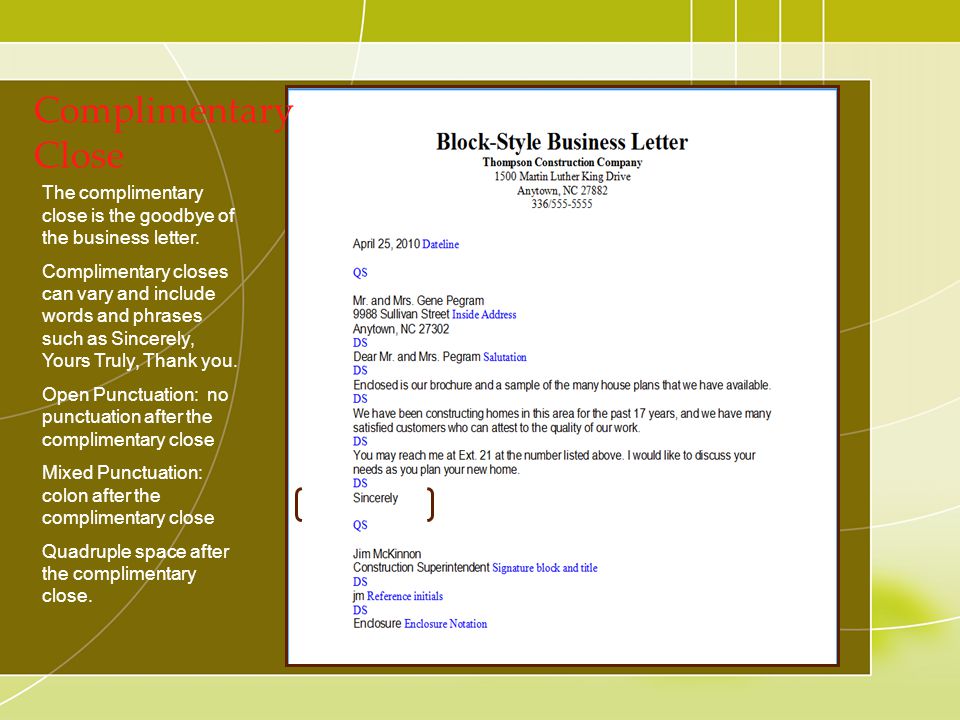
16
Signature Block The signature block is the writers typed name and title. There will always be a quadruple space before the signature block to allow for the writer to hand sign their name. Double space after the signature block.

17
Optional Components of Letter 1) Reference Initials
Reference initials are the typist initials. Reference initials are used when the writer of the letter and the typist of the letter are different people. Reference initials are lowercase and have no punctuation or spaces. Double space after reference initials.
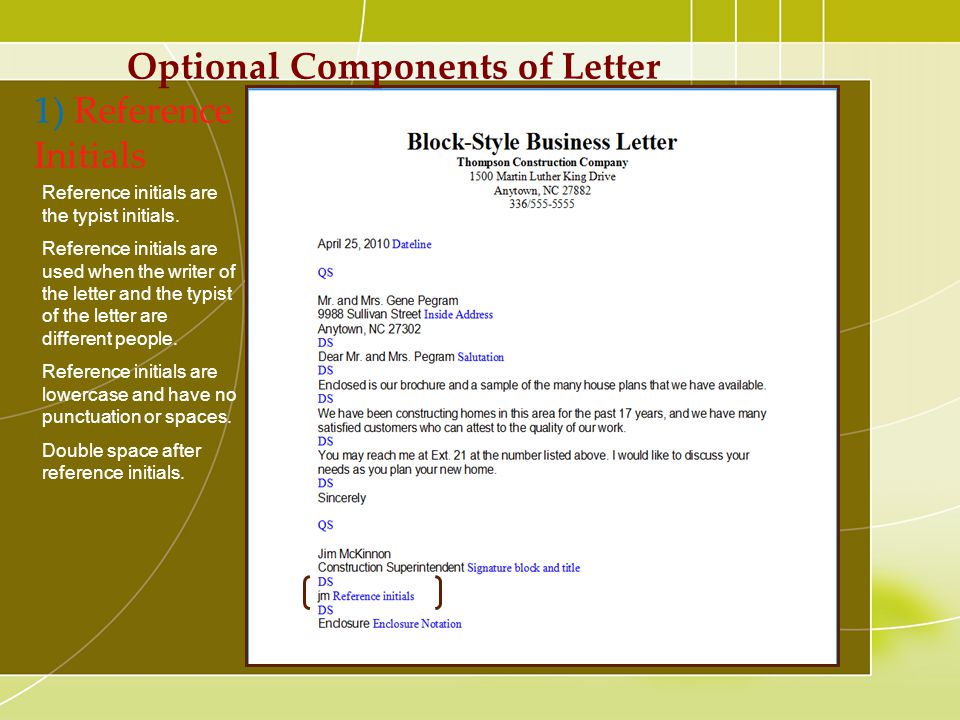
18
2) Enclosure Notation An enclosure notation is used when something is enclosed (included) within the envelope with the letter. Enclosures can include anything from a form to a picture to a check. Double space after the enclosure notation.
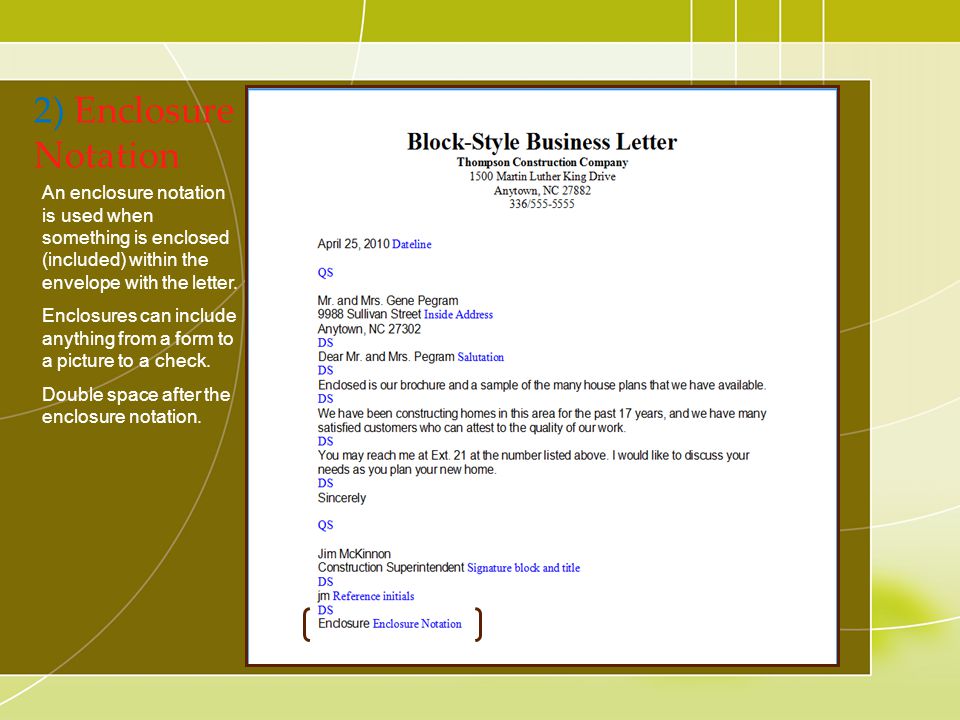
19
3) Subject Line Dr Ron Schafer Linguistics Department Edinburgh University Edinburgh, IL Subject: LINGUISTICS CONFERENCE REGISTRATION PAYMENT Dear Dr Schafer

20
4) New-Page Notation Left, Margin, Subsequent Page Notation Mabel Tinjaca Page 2 Nov 26, 2011

21
5) Copy Notation Brian Altman Sincerely
Enclosure: August Status Report Cc: Marcia Rittmaster Erica Nochlin

22
Letter Templates
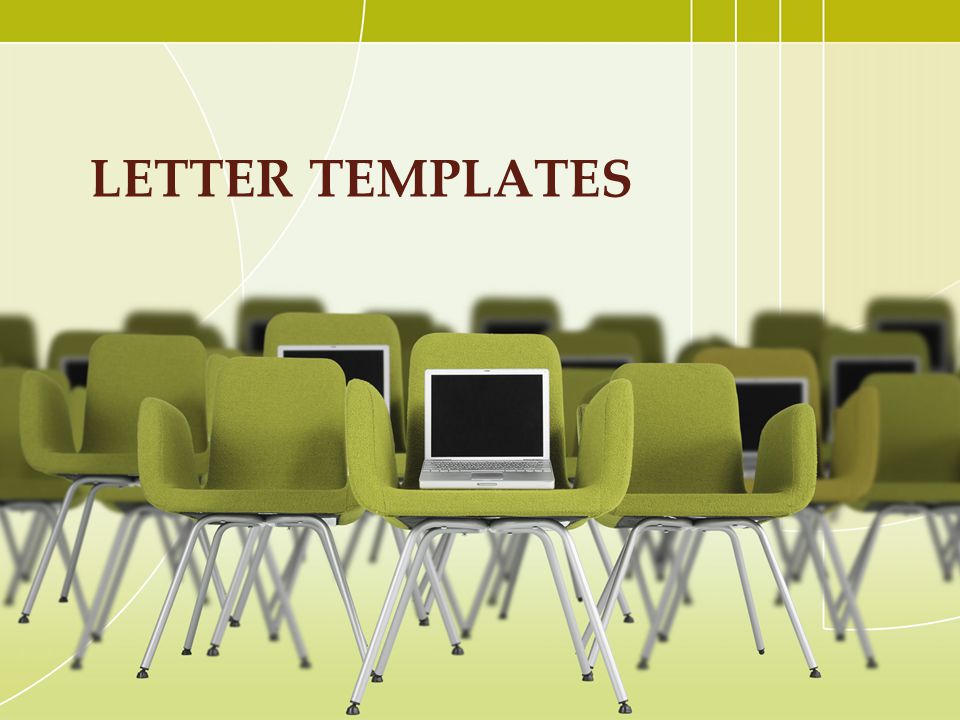
23
Some already made Templates are available…

24
Letter formats
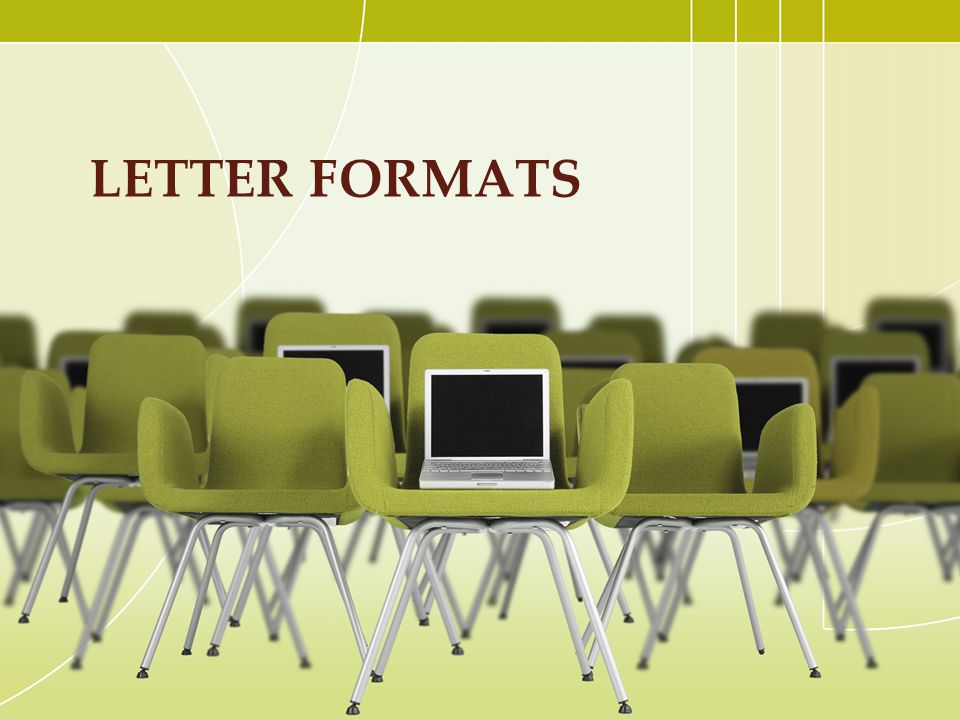
25
Formats Full Block Format: all letter parts are keyed at the left margin. There will be nothing indented with tabs or the tab key. Sometimes “Subject Line” is also included in Full Block format.
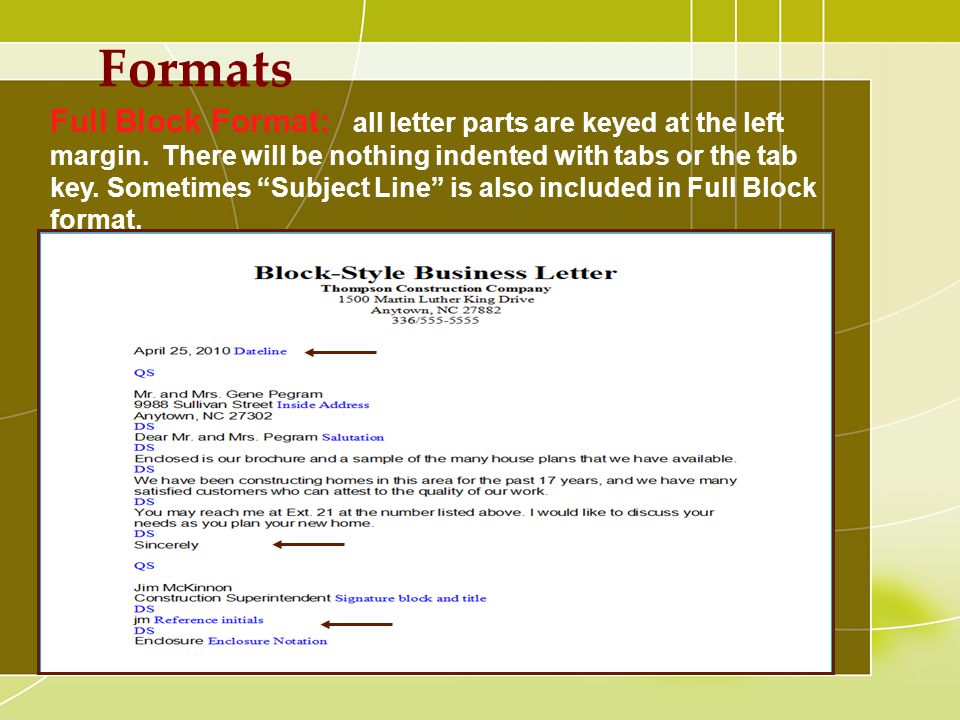
26
Modified Block style: The date, complimentary closing, and writer’s name and title are indented to 3.25”. This feature of indenting gives it old-fashioned and less- professional look.

27
Simplified Format: Similar to full block letter in that all text is typed margin left. However, the three significant changes in it are: No salutation, no added subject line, no complementary close. 935 West Hermosa Okasa, CA 94610 Nov Edie Kreisler 1126 Ranglien Way San Antonio, TX 78213 Subject: PURCHASE OF BREACHFRONT PROPERTY INTRODUCTION DISCUSSION CONCLUSION Walt Mcdonald Enclosure (3)

28
Project/ Assignment Go to different banks
Collect minimum 10 sample letters from each bank Categorize them Refer to “Technical Writing” by Gerson & Gerson for the categorization of letters Analyse each letter Identify their IDENTICAL/ DISTINGUISHED features/ formats/ structure PRESENT your research project in the Class Write a LONG FREPORT on the same for your final internal assessment.

29
Thank you
















![Toni Kroos là ai? [ sự thật về tiểu sử đầy đủ Toni Kroos ]](https://evbn.org/wp-content/uploads/New-Project-6635-1671934592.jpg)


